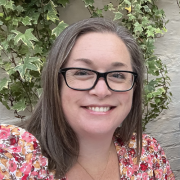Presentations
Ethics Extravaganza 2025, offers 5.75 E CERPs for IBCLCs around the world to help satisfy the requirement for a minimum of 5.00 E CERPs on ethics and related topics for IBCLC recertification.
Some of the presentations for Ethics Extravaganza are new and some are drawn from previous iLactation conferences. Anyone is welcome to register, but please note that for IBLCE re-certification, you can claim only for presentations that you have not viewed previously. CLCs can also use these CERPs for re-certification.

The good, the bad & the unethical: Being an IBCLC in the age of social media
Caoimhe Whelan, BEng, IBCLC, MSc(research) - Read more
Conflicts of interest and the protection of breastfeeding
Katie Pereira-Kotze, RD (SA), M Nutr, PhD - Read more
A balancing act. How to assess risk vs benefit ratio when it comes to depressive spectrum disorders medications in lactation.
Karolina Morze, Mpharm - Read more



